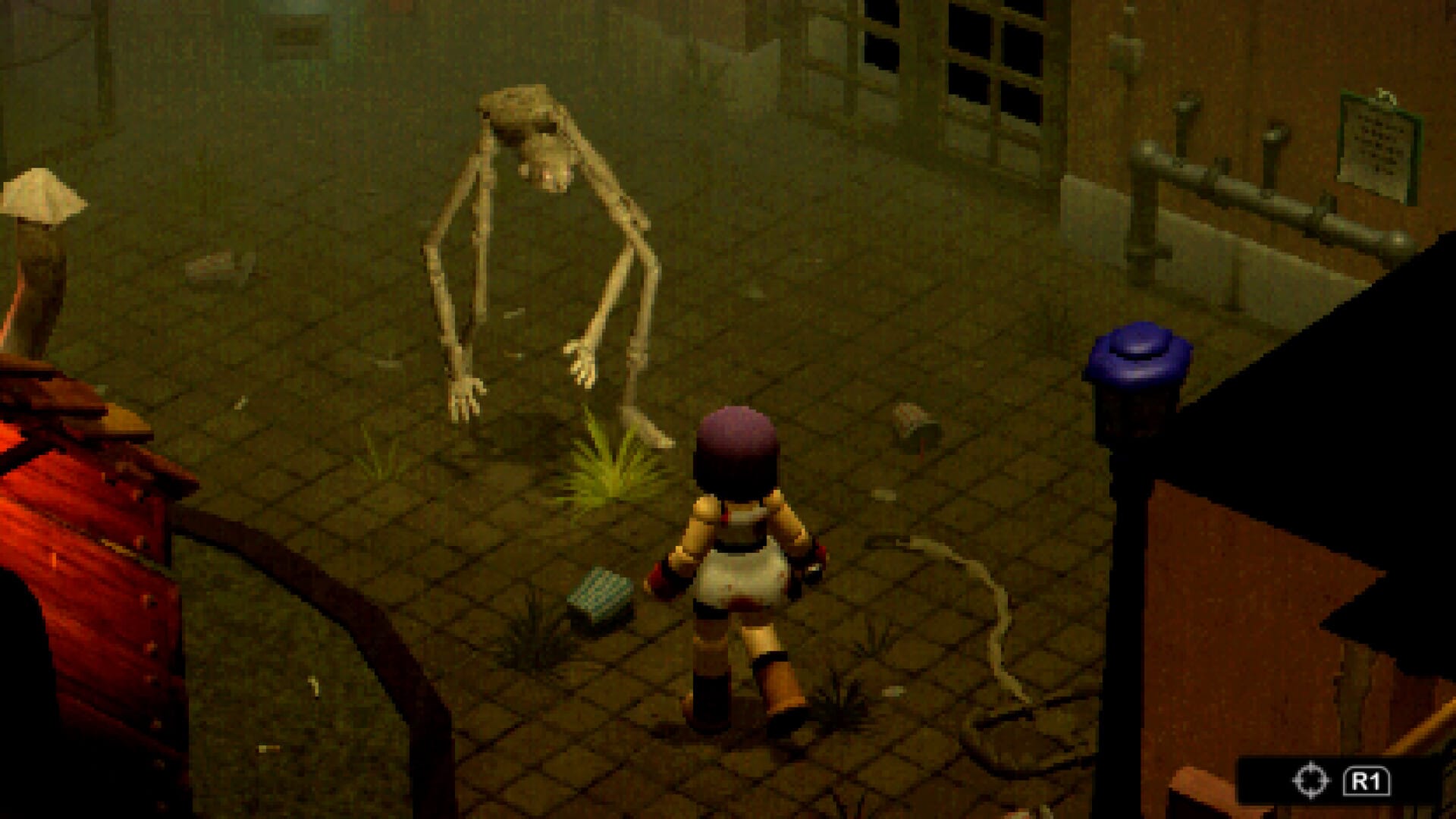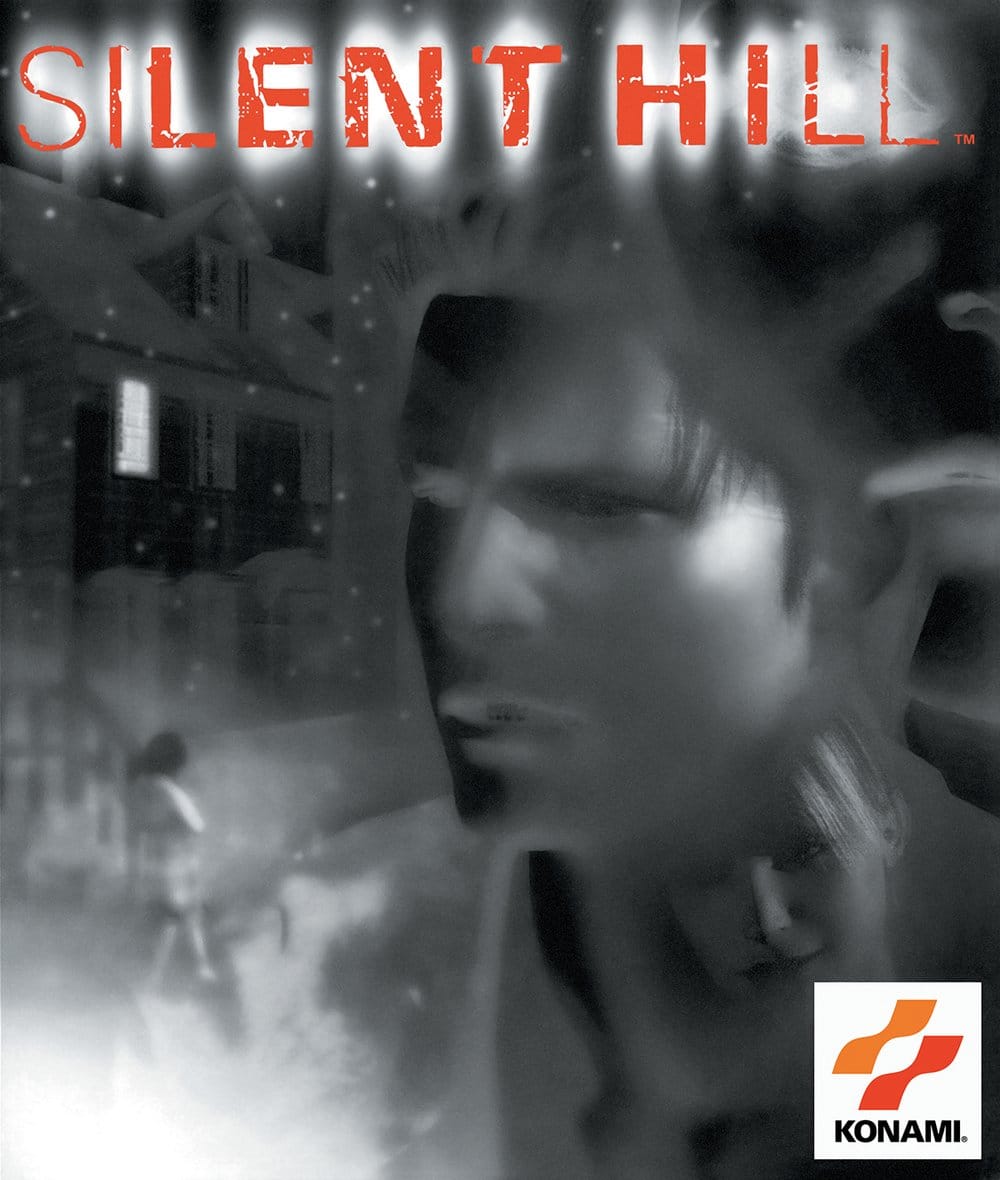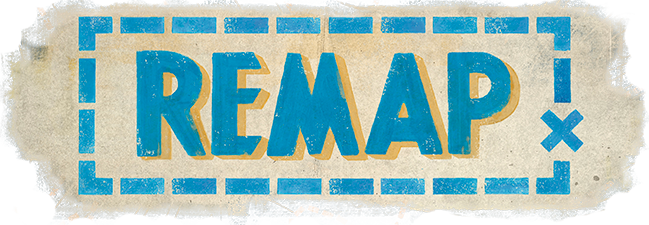The year is 1996. I’m home from middle school, and my friends and I have walked to the closest house—mine—before dinner. The daily ritual is to grab one bag of chips (usually Doritos) and one soda (often Mountain Dew) from the garage. My friend Matt could not be trusted, which is why my mom eventually put a sign in the garage reminding everyone to grab one of each. I am pretty sure he was still grabbing at least a second bag of chips and hoping no one noticed.
Snacks and beverages in hand, we’d head upstairs and sit down in front of the television to play video games. Sometimes, we’d play GoldenEye and scream at one another for clearly looking at another person’s screen to gain an advantage. Other times, we’d beat the crap out of one another in rounds of Tekken. This time, everyone was waiting with baited breath because I had a copy of Resident Evil, billed as a very scary new video game for the original PlayStation.
We were, I should note, all 11 years old. A perfect situation.
I distinctly remember turning the infamous L-shaped corner in the early hours of Resident Evil, the one where you-know-what jumps through the window when you least expect it. I did not expect it. My friends did not expect it. And my mom, running to the room to see why everyone was screaming, also did not expect it. As I frantically emptied my clip into the zombie dog that had rudely burst onto the scene, our terror turned to laughter. What was behind the next door?
www.biohazard1.com is an incredibly funny name for a website. It no longer exists.
That, in a nutshell, is the magic of early survival horror games.
Crow Country is a game from 2024 trying to capture the energy of 1996, about the story of a creepy theme park that, of course, has suddenly closed. Who could say why? More specifically, it’s after the energy of survival horror games from that era, an energy the genre has been chasing since. It’s the era of the original Resident Evil, Silent Hill, and other defining games.
The difference between then and now is that Resident Evil’s developers didn’t know they were outlining a genre. Its designers, like its eventual players, were fumbling in the dark. Crow Country’s designer and writer, Adam Vian, has hindsight. What does it mean to make a game inspired by works from 30 years ago that clicks for those burdened by nostalgia and people under the age of 30? What elements of survival horror are crusty mechanics that need to be updated for the modern age, versus intrinsic crustiness that makes survival horror work at all?
To learn more, I asked Adam to answer a few questions about what defines a genre, what it means to play with genre conventions and expectations, and why Crow Country became a hit.

Remap: Crow Country has proved very popular, but is it surprisingly popular? Has its success taken you by surprise at all?
Adam Vian: I was cautiously optimistic before release, but the response has been beyond anything we could have reasonably hoped for. Numbers-wise, it's the most successful game release we've ever had. But it was seeing all the amazing fanart (and cosplay) in the first couple of weeks really drove home the reality of the game's popularity. Looking on Twitch and seeing a whole screen full of streamers all streaming the game at the same time—that was a very surreal moment for me. I saved a screenshot of it, in case I ever start to doubt it really happened.
Naturally, you’d guess it’s old school survival horror fans, but is that too simplistic?
Adam: Yeah, it's had a wider reach. Old school survival horror fans really like Crow Country, but before we added the hard mode, they mostly found it pretty easy. Perhaps too easy. Despite that issue however, they still seemed to have a great time with it, and it often got labelled as a great entry-point for players looking to discover the genre. 'My first survival horror game'. And I'm fine with that! It definitely seems to have worked out for us—a lot of players who are younger or less experienced with the genre have discovered the game and loved it.
What is your definition of survival horror, and how does that apply to what Crow Country’s definition of survival horror is?
Adam: My personal definition of survival horror probably starts and ends with the format laid out by Resident Evil 1. It's about navigating an unfolding (Metroidvania-like) space, unlocking new areas by solving puzzles and finding inventory items - all while enemies are trying to attack you. And, of course, you have limited resources with which to deal with the enemies.
When making the Crow Country pitch deck, I had a slide about the inspiration I was taking from PS1-era survival horror games—and it included a list of characteristics I wanted to aim for:
- A rich atmosphere.
- A strong, tangible sense of place.
- A small (but memorable) cast of characters.
- Meaningful exploration.
- Engaging puzzle design.
- A mixture of tension and tranquility.
So, I suppose these are the things I value most in these kinds of games. Or, perhaps, this is a list of things I'm often disappointed to not find in many modern horror games—and thus, things I wanted to make sure my game had. (Perhaps that's why this list doesn't mention combat?)

I heard someone describe Crow Country as a game that tries to match your memory of what it was like to play a survival horror game, rather than what it was actually like. Does that feel philosophically accurate?
Adam: Yeah, I'd agree with that. It wasn't a mantra I spoke aloud at any point, but because I made the game entirely by feeling my way through the process, it makes sense. Like when you draw something from memory, your drawing might look more like how that thing feels to you, compared to how it actually looks.
The graphics are one aspect where this is definitely the case. I don't actually think Crow Country looks like any kind of PlayStation 1 game—not if you compared them directly. But it feels like it does, and that's all that matters.
I love that the game lets you toggle between tank controls and “modern” controls. But even offering modern controls is a choice, a concession to modern sensibilities. There’s a lot of that throughout Crow Country. How did you balance trying to meet people where they are, versus maintaining, I don’t know, some sense of “purity” about what a “survival horror” game is—or isn’t?
Adam: Originally, the game only had tank controls. It didn't occur to me to include modern controls. But even back then, I noticed something interesting - tank controls feel good on a d-pad, but they feel bad on an analog stick. And, vice versa for modern controls. And since most people just use the analog stick by default, it meant they'd be using the bad-feeling tank controls.
Eventually, I got some negative feedback about the tank controls, and I decided to add modern controls. And so I was able to solve my problem by mapping modern controls onto the stick, and tank controls on the d-pad. This means you have both at the same time! I was proud of myself for 'inventing' such a clever solution, until I realised that the HD Remaster of Resident Evil 1 Remake did the same thing.
It's so funny to me that people often compliment Crow Country for allowing you to rotate the camera. Like it's some interesting, unique feature. It's standard in pretty much all 3rd person games!! But because the game resembles Resident Evil 1 or whatever, being able to rotate the camera apparently comes as a pleasant surprise.
The one thing I was really worried about was not having any checkpoints or auto-saves. It's rare these days to have to manually save your game or otherwise risk losing progress. I was worried people would complain this was archaic, unacceptable in the modern landscape. But it ended up working out just fine, people seem happy to use the save rooms. (Although, I suspect this was helped by the fact that the game isn't that difficult—people weren't dying very much.)
In terms of old-school mechanics I avoided...the game doesn't use limited saves or limited inventory space. Both of these are fairly specific to Resident Evil, as Silent Hill doesn't use them either. That said—I want to explore both, next time.
The game offers a story mode, a way to walk through the environment without the fear of death. Were you actively crafting the game knowing “hey, this room needs to still be interesting if someone isn’t popping zombies”?
Adam: Years ago I'd seen a tweet from someone asking if there was a mod that removed the monsters from Silent Hill. In their words: “I just love being there.”
I was about halfway through Crow Country's development, and I just thought... why not? There are a lot of people who have decided they can't/won't play horror games - because they're too stressful, or whatever. But they'd probably love a spooky puzzle adventure game.
And this goes back to my previous answer about my personal definition for survival horror. It so happens that all my favourite aspects of these games are things that would still be fully present in a non-combat mode—the atmosphere, the exploration, the puzzles, the characters. So (even if I hadn't realised it at first) from the beginning I'd been crafting a game that would be engaging even with the enemies turned off.
There are soooooo many weird things Capcom will have to update for Code Veronica X.
Do you have a favorite survival horror game, and why isn’t it Resident Evil: Code Veronica X? I know that game has, in many ways, aged poorly. But that transition to proper 3D remains such a defining moment of my own relationship with survival horror.
You know, I recently replayed Code Veronica X. I'd only played it once before, when I was a teenager. On my revisit, I found myself liking the game a lot. Over the course of my playthrough, I went from “Capcom shouldn't remake this one” to “I'd be totally fine if Capcom remade this one.” I think it's got some really cool stuff in it.
However, it's a really cruel game. I lost out on the magnum due to no fault of my own. And then I lost all my best weapons and ammo in a character-switching story beat that I didn't know was about to happen. So, the end result was that I didn't have enough ammo to defeat the final boss. I literally just had to give up! You can bet they'll sand off those rough edges if it does end up getting a remake.
(For the record, the game Capcom should remake next is Dino Crisis.)
My favourite survival horror game is Silent Hill 3. I think it's the scariest, with the heaviest atmosphere. The rest of my top 5 would be Silent Hill 2, Resident Evil 2 (classic), Resident Evil 1 (remake) and Parasite Eve 2. And... an honourable mention to Haunting Ground.
